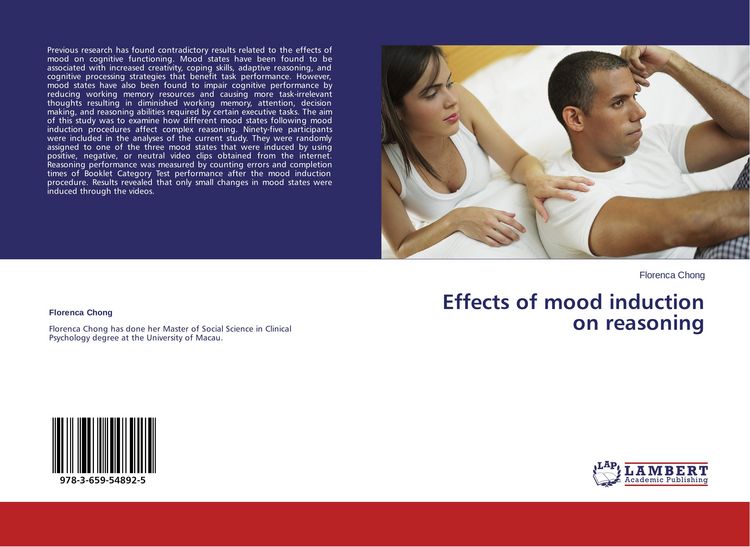
Beschreibung
Details
Einband
Taschenbuch
Erscheinungsdatum
08.07.2014
Verlag
LAP LAMBERT Academic PublishingSeitenzahl
88
Maße (L/B/H)
22/15/0,6 cm
Gewicht
149 g
Sprache
Englisch
ISBN
978-3-659-54892-5
Previous research has found contradictory results related to the effects of mood on cognitive functioning. Mood states have been found to be associated with increased creativity, coping skills, adaptive reasoning, and cognitive processing strategies that benefit task performance. However, mood states have also been found to impair cognitive performance by reducing working memory resources and causing more task-irrelevant thoughts resulting in diminished working memory, attention, decision making, and reasoning abilities required by certain executive tasks. The aim of this study was to examine how different mood states following mood induction procedures affect complex reasoning. Ninety-five participants were included in the analyses of the current study. They were randomly assigned to one of the three mood states that were induced by using positive, negative, or neutral video clips obtained from the internet. Reasoning performance was measured by counting errors and completion times of Booklet Category Test performance after the mood induction procedure. Results revealed that only small changes in mood states were induced through the videos.
Unsere Kundinnen und Kunden meinen
Verfassen Sie die erste Bewertung zu diesem Artikel
Helfen Sie anderen Kund*innen durch Ihre Meinung
Kurze Frage zu unserer Seite
Vielen Dank für dein Feedback
Wir nutzen dein Feedback, um unsere Produktseiten zu verbessern. Bitte habe Verständnis, dass wir dir keine Rückmeldung geben können. Falls du Kontakt mit uns aufnehmen möchtest, kannst du dich aber gerne an unseren Kund*innenservice wenden.
zum Kundenservice